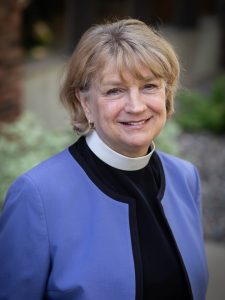 By Bishop Ann Svennungsen
By Bishop Ann Svennungsen
When my mother died in 2012, we received several sympathy cards from women we didn’t know. They were all members with mom in Bible Study “circles.” Mom rarely missed her ALC/ELCA Bible study each month, and she joined a new circle whenever she moved to a new town.
In the article “The Evangelical-Mainline Divide: Two Questions,” one of the questions author David Hollinger raises is why have mainline religious leaders failed to more directly challenge evangelical ideas about the Bible.
“Luther spoke of scripture as the manger in which we find Christ.”
Hollinger argues that, since the mid-twentieth century, mainline Christianity has devoted “remarkably little attention to Biblical hermeneutics.” Indeed, it seemed that mainline religious leaders “had chosen not to plant [their] flag in the Bible.”
AS PEOPLE SHAPED by Luther’s emphasis on “Sola Scriptura,” it is hard to think we’ve abandoned our place in the public square – leaving it up to the fundamentalist theologians to define the role of scripture in the Christian faith.
We affirm that scripture is the norm of our faith and life. As the word of God, scripture is a means for God to speak to us and a means for us to commune with God.
“In the past two weeks, I heard a pastor lament that there are fewer attending Tuesday night Bible study now.”
We Lutherans believe that the Bible truly matters. But, it doesn’t matter as much as the Word made Flesh. It doesn’t matter as much as Jesus. To quote Marcus Borg, “Jesus is the norm of the Bible. When the Bible and what we see in Jesus conflict, as they sometimes do, Jesus trumps the Bible. … In Jesus, Christians see more clearly than anywhere else the character and passion of God.”
Luther spoke of scripture as the manger in which we find Christ. How can we share this biblical hermeneutic more powerfully and publicly?
OUR NEW ELCA Vice President, Imran Siddiqui, met with the Conference of Bishops last week. One of the concerns he shared about the ELCA is that Lutherans and other mainline Protestants have too often “left the field” to the voices of evangelical fundamentalists. Too often, that voice is the only theological perspective which takes up space in the public square.
I’m not sure if there will ever be a resurgence of Bible study “circles.” Yet, I’m praying for a resurgence of another kind. In this hybrid space between “all online” to “all in person,” could Zoom Bible studies help keep us “steadfast in God’s word”?
“The Bible truly matters. But, it doesn’t matter as much as the Word made Flesh.”
In the past two weeks, I heard a pastor lament that there are fewer attending Tuesday night Bible study now that they moved from zoom to in person. Another pastor wonders if her expertise in leading online Bible study could be a resource for other congregations seeking to deeper grounding in God’s word.
Perhaps a flourishing of Zoom Bible studies might help us commune with God, strengthen community, and help us hear God speaking. And, perhaps, it would better prepare twenty-first century Lutherans to speak in the public square about Scripture’s power to help Christians “do justice, love mercy, and walk humbly with God.”

